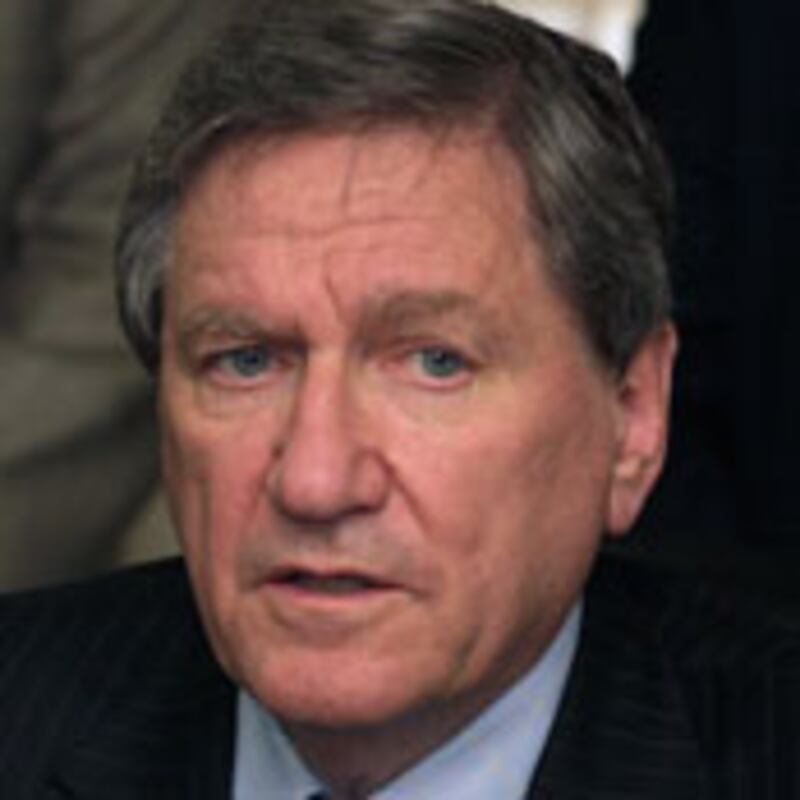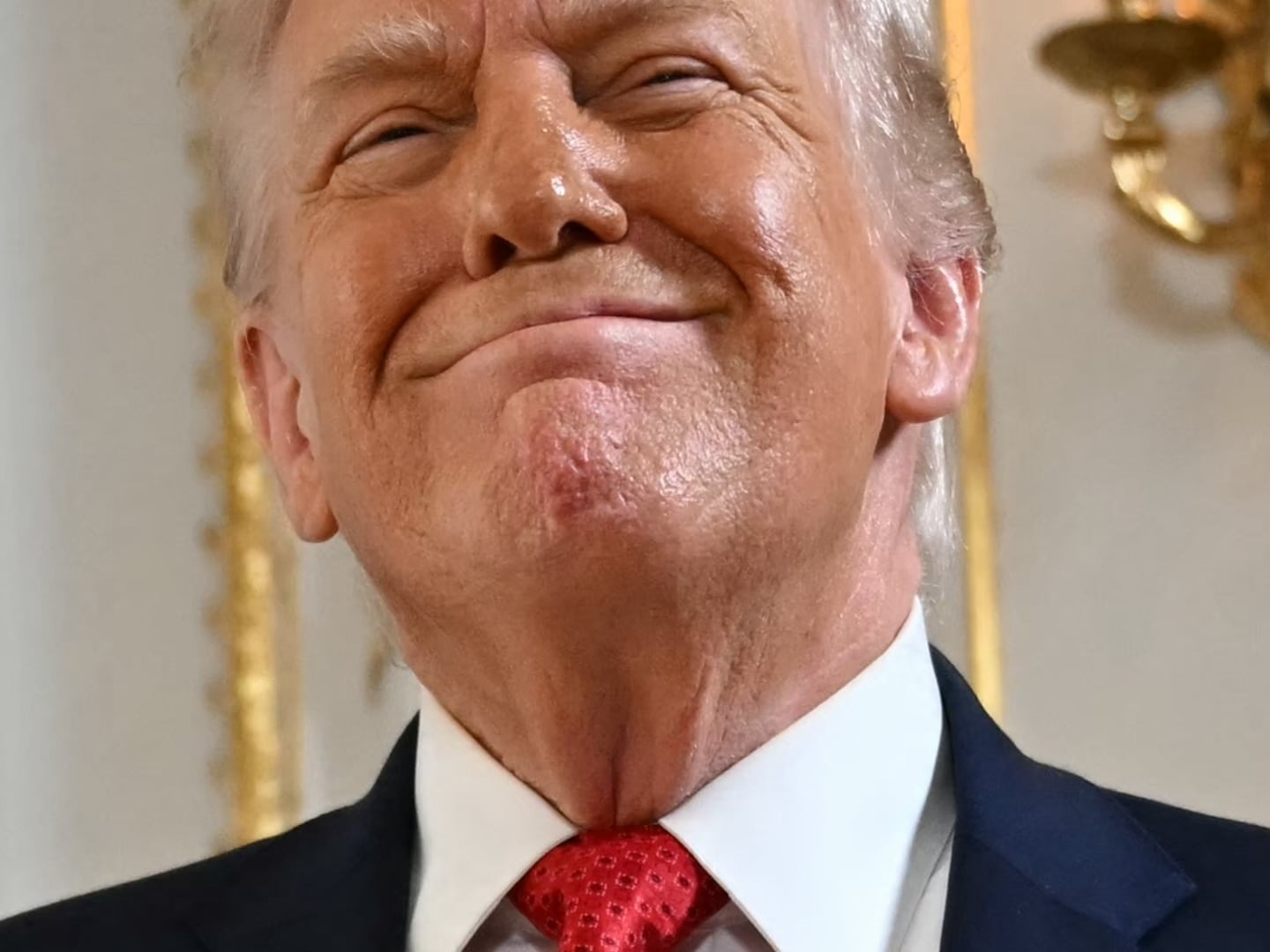
No sooner had President Obama put his Afghan plan out there than his Cabinet started pulling it back. Secretary of State Hillary Clinton, Defense Secretary Robert Gates, and Mike Mullen, chairman of the Joint Chiefs of Staff hedged on Obama’s commitment to start withdrawing American troops from Afghanistan by July 2011, following an outcry from Congress and rising fears being expressed in Islamabad and Kabul that once again the U.S. was getting ready to abandon the region—just as it did in 1989 after the Soviet withdrawal from Afghanistan.
Afghans and Pakistanis are worried. For eight years, the Afghan army, police, and government has been trying to become more self-sufficient. They’ve failed—and the track record suggests they’ll be nowhere near ready to take over from the Americans in 2011.
“If we had an open-ended troops commitment, that would carry with it the seeds of its own limitations and backlash on the ground,’’ Holbrooke told me.
Richard Holbrooke, the U.S. special representative for Afghanistan and Pakistan, tried to calm my fears when he told me from Brussels by telephone that there will be constant reviews. ‘’We are not going to abandon Afghanistan and long-term economic and security assistance will continue, but the use of U.S. combat troops is not open-ended,’’ he said. “If we had an open-ended troops commitment, that would carry with it the seeds of its own limitations and backlash on the ground,’’ he added.
• M.J. Akbar: Obama’s False Ally• William R. Polk: The Militarization of AmericaHolbrooke made the point that the Afghans themselves hold very contradictory positions after "30 years of tragedy … where on the one hand they don’t want foreign troops, and on the other hand, they want foreigners to take care of their problems."
The withdrawal date, just 18 months away, seems dangerous—given that the Taliban control 11 out of 34 provinces in Afghanistan at the moment. And they have expanded into northern and western Afghanistan where European NATO forces, bound by caveats that forbid them going on the offensive, have failed to dislodge them.
Another major question mark in the region: What exactly will the so-called civilian surge achieve? What does the U.S. believe can and should be the end state for Afghanistan’s economic development—especially when Obama is, like his predecessor George W. Bush, so loath to use the term “nation-building?”
‘’We don’t use nation-building because it’s become a polarizing word,” Holbrooke told me. “This is a long process and will go on for decades with international support.”
But why should Afghans believe the U.S. can help create a functioning economy that can provide jobs and increase state revenue in 18 months’ time, when it has failed to do so during the past eight years? Again, the fear is that long-term plans will be sacrificed for short-term projects.
Another major concern: Is Afghan President Hamid Karzai up to the job? Will he implement a serious reform agenda? Elected to a second term in office after a widely rigged election, it will be unclear for some months yet whether he will be an effective partner in taking charge of the security of the country.
The other major worry in Kabul and Islamabad is that the Afghan Taliban will just sit it out for the next 18 months, wait for the U.S. withdrawal to start and then make a grab for power. The answer to that conundrum lies in Pakistan where, as President Obama stated categorically, most of the Afghan Taliban and al Qaeda leadership is based.
“Where can the Taliban sit it out, except in Pakistan?’’ asked Holbrooke. “They cannot sit it out in Afghanistan, because they will be under intense military [pressure] there. And that is why Pakistan is singled out as the most important issue,’’ he said. The U.S. will be using a mixture of carrots and sticks to persuade the Pakistani military to change its long-term strategic direction and deny the Taliban refuge.
Obama’s speech lacked detail on what the U.S. strategy towards Pakistan will be, although media leaks suggest an expansion of drone attacks and greater CIA actions inside the country. Holbrooke declined to be drawn out on this, except to say, “it is an absolute necessity that we and Pakistan work together against our common enemies.’’
However, the Pakistani establishment does not necessarily see it that way. One dangerous but prevalent thought in Pakistani military circles is that now is the time to hang on to the Afghan Taliban as potential allies, because they could return to power a few years down the road. A Taliban-led government in Kabul would be pro-Pakistan and help ward off rivals such as Iran and India.
That of course would be unacceptable to the vast majority of Afghans and the international community—while destabilizing the entire region. However, Pakistan still differentiates between the Afghan Taliban, which it covertly supports, and the Pakistani Taliban—which Islamabad is fighting against and considers a threat to the state.
Obama has attempted to satisfy both sides of the American debate—sending more troops but giving a date for their return. However he will have to do much more before he satisfies the questions being raised in the region.
Ahmed Rashid is a Pakistani journalist based in Lahore, who has covered Afghanistan, Pakistan and Central Asia for a variety of publications since 1979. He is the author of the best selling Taliban and most recently, Descent Into Chaos: The U.S. and the Disaster in Afghanistan, Pakistan, and Central Asia. He writes for the Washington Post, the New York Review of Books and BBC Online amongst other publications. This year Foreign Policy magazine chose him as one of the world’s most important 100 Global Thinkers.






